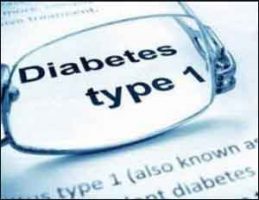- Home
- Editorial
- News
- Practice Guidelines
- Anesthesiology Guidelines
- Cancer Guidelines
- Cardiac Sciences Guidelines
- Critical Care Guidelines
- Dentistry Guidelines
- Dermatology Guidelines
- Diabetes and Endo Guidelines
- Diagnostics Guidelines
- ENT Guidelines
- Featured Practice Guidelines
- Gastroenterology Guidelines
- Geriatrics Guidelines
- Medicine Guidelines
- Nephrology Guidelines
- Neurosciences Guidelines
- Obs and Gynae Guidelines
- Ophthalmology Guidelines
- Orthopaedics Guidelines
- Paediatrics Guidelines
- Psychiatry Guidelines
- Pulmonology Guidelines
- Radiology Guidelines
- Surgery Guidelines
- Urology Guidelines
BCG vaccine: A New Path to Type 1 Diabetes Treatment

A new article published in the Diabetes/Metabolism Research and Reviews reported that tuberculosis vaccine, bacillus Calmette-Guerin (BCG), induces a host response that is driven in part by tumor necrosis factor (TNF). Induction of TNF through BCG vaccination or through selective agonism of tumor necrosis factor receptor 2 (TNFR2) has two desired cellular immune effects; vis, selective death of autoreactive T cells and expansion of beneficial regulatory T cells (Tregs). It was stated that in human clinical trials, in both type-1 diabetes and multiple sclerosis, administration of the BCG vaccine to diseased adults has shown therapeutic potential. In a Phase I trial, in advanced type-1 diabetes, two BCG vaccinations spaced 4 weeks apart selectively eliminated autoreactive T cells, induced beneficial Tregs and allowed for a transient and small restoration of insulin production. Hence, it was inferred that the advancing global clinical trials using BCG combined with mechanistic data on BCGs induction of Tregs suggests value in this generic drug and possible immune reversal of the type-1 diabetic autoimmune process.
The data being presented at the 75th Scientific Sessions of the American Diabetes Association demonstrates a potential new mechanism by which the BCG vaccine may restore the proper immune response to the insulin-secreting islet cells of the pancreas. Presented by Denise Faustman, MD, PhD, director of the Massachusetts General Hospital Immunobiology Laboratory and principal investigator of the trial, the findings suggest that BCG may induce a permanent increase in expression of genes that restore the beneficial regulatory T cells (Tregs) that prevent the immune system from attacking the body's own tissue. The results are being presented on Saturday, June 10.
"Many groups are looking at the ability of BCG vaccination to reverse autoimmunity," says Faustman, who is an associate professor of Medicine at Harvard Medical School. "We and other global efforts have known for some time that restoring beneficial Treg cells might halt the abnormal self-reactivity in type 1 diabetes and other autoimmune diseases, but therapies to restore this immune balance have not achieved long-lasting results. The discovery that BCG restores Tregs through epigenetics a process that modulates whether or not genes are expressed is exciting. This now provides a better idea of how BCG vaccination appears to work by powerfully modulating Treg induction and resetting the immune system to halt the underlying cause of the disease."
Type 1 diabetes is an autoimmune disease characterized by the destruction of islets by autoreactive T cells, which mistakenly attack islets as if they were an infection. Tregs are the immune system's "brakes" that normally prevent misdirected attacks against tissues without dampening the entire system. Several research groups have suggested methods for introducing or expanding Tregs in patients with type 1 diabetes, but to date no therapies have been approved.
Best known for its role in tuberculosis prevention, the BCG vaccine is based on a harmless strain of bacteria related the one that causes tuberculosis. A generic drug with over 100 years of clinical use and safety data, BCG is currently approved by the FDA for vaccination against tuberculosis and for the treatment of bladder cancer. Multiple international studies are currently investigating the potential of repeat BCG vaccinations to prevent and reverse autoimmune diseases including type 1 diabetes and multiple sclerosis.
"BCG is interesting because it brings into play so many areas of immunology that we as a community have been looking at for decades, including Tregs and the hygiene hypothesis," says Faustman. "Repeat BCG vaccination appears to permanently turn on signature Treg genes, and the vaccine's beneficial effect on host immune response recapitulates decades of human co-evolution with myocbacteria, a relationship that has been lost with modern eating and living habits. It is incredible that a safe and inexpensive vaccine may be the key to stopping these terrible diseases."
Faustman's research team was the first group to document reversal of advanced type 1 diabetes in mice and subsequently completed a successful phase I human clinical trial of BCG vaccination. The five-year, 150-person, phase II trial is investigating whether repeat BCG vaccination can clinically improve type 1 diabetes in adults with existing disease and is almost fully enrolled.
Long-term follow-up data from the phase I trial will be published later this year. The phase II trial is entirely funded by private philanthropy from individuals and family foundations.

Disclaimer: This site is primarily intended for healthcare professionals. Any content/information on this website does not replace the advice of medical and/or health professionals and should not be construed as medical/diagnostic advice/endorsement or prescription. Use of this site is subject to our terms of use, privacy policy, advertisement policy. © 2020 Minerva Medical Treatment Pvt Ltd